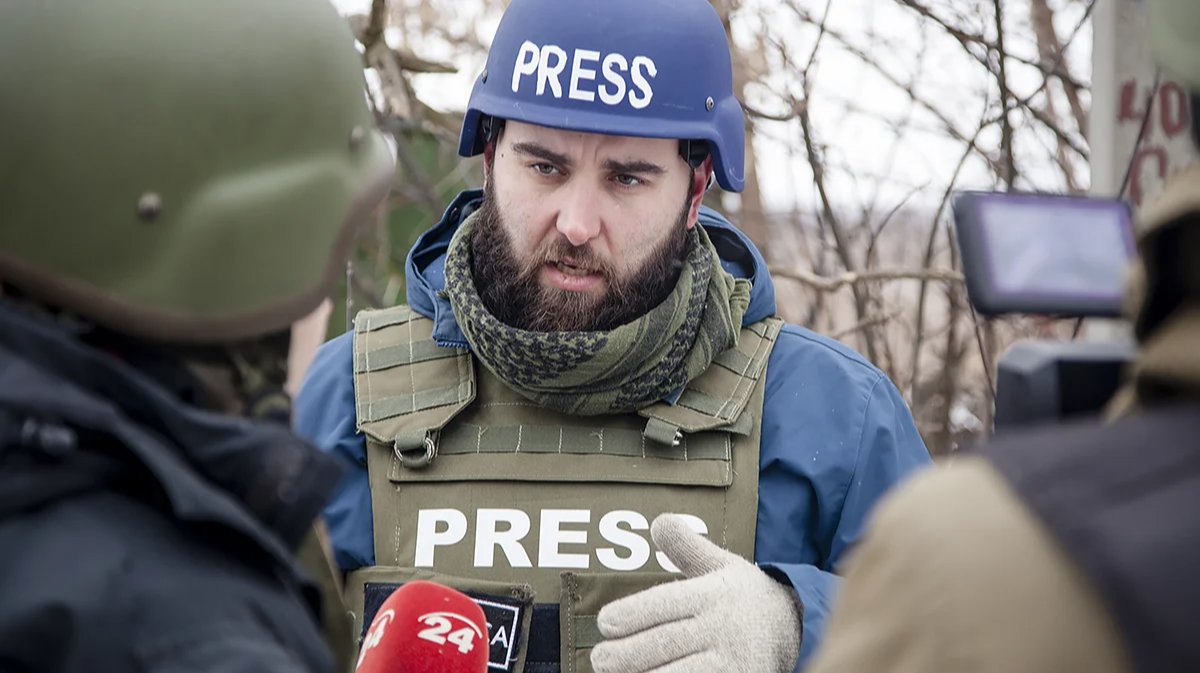Earlier this month, Russia welcomed home eight of its citizens — a killer, a few hackers and some undercover intelligence operatives — as part of the largest ever prisoner exchange between the country and the West. One of those undercover spies was 42-year-old Pavel Rubtsov, who for years was a regular fixture at Russian democratic opposition forums and conferences in the EU, where delegates knew him as Spanish journalist Pablo González.
Rubtsov was arrested for espionage in Poland just days after Russia launched its full-scale invasion of Ukraine in February 2022. Independent media outlet Agentstvo reported in May 2023 that González had probably been an agent embedded by the GRU, Russia’s foreign military intelligence agency, in the entourage of Zhanna Nemtsova, the daughter of murdered opposition politician Boris Nemtsov.
However, as there was no official explanation forthcoming from Polish intelligence, many Russian opposition figures struggled to believe that González had really been an agent. Indeed, numerous press freedom and human rights organisations spoke out on his behalf after he was charged, only to watch in horror when Putin came to meet González personally at Moscow’s Vnukovo Airport on 1 August.
Just how did González manage to ingratiate himself with the Russian opposition, betray them and yet still end up escaping Polish justice?
Charm offensive
The Boris Nemtsov Forum, an annual event where Russian opposition figures meet European politicians and intellectuals to discuss the future of Russia-EU relations, was hosted in the German capital Berlin in October 2017. It was attended by politicians Ilya Yashin and Dmitry Gudkov, lawyer Ilya Novikov and other representatives of Russia’s democratic opposition.
Many at the forum remembered a certain Spanish journalist by the name of Pablo González who actively wanted to be introduced to everyone. This large, imposing man of about 35 was presented to everyone as a freelancer specialising in Eastern Europe and military conflicts. He spoke perfect Russian, was sympathetic to the Russian opposition and weighed into discussions about the importance of free speech with gusto. González made many useful contacts, had his picture taken with Yashin and attended multiple other Nemtsov Foundation events with some of Russia’s leading opposition figures.
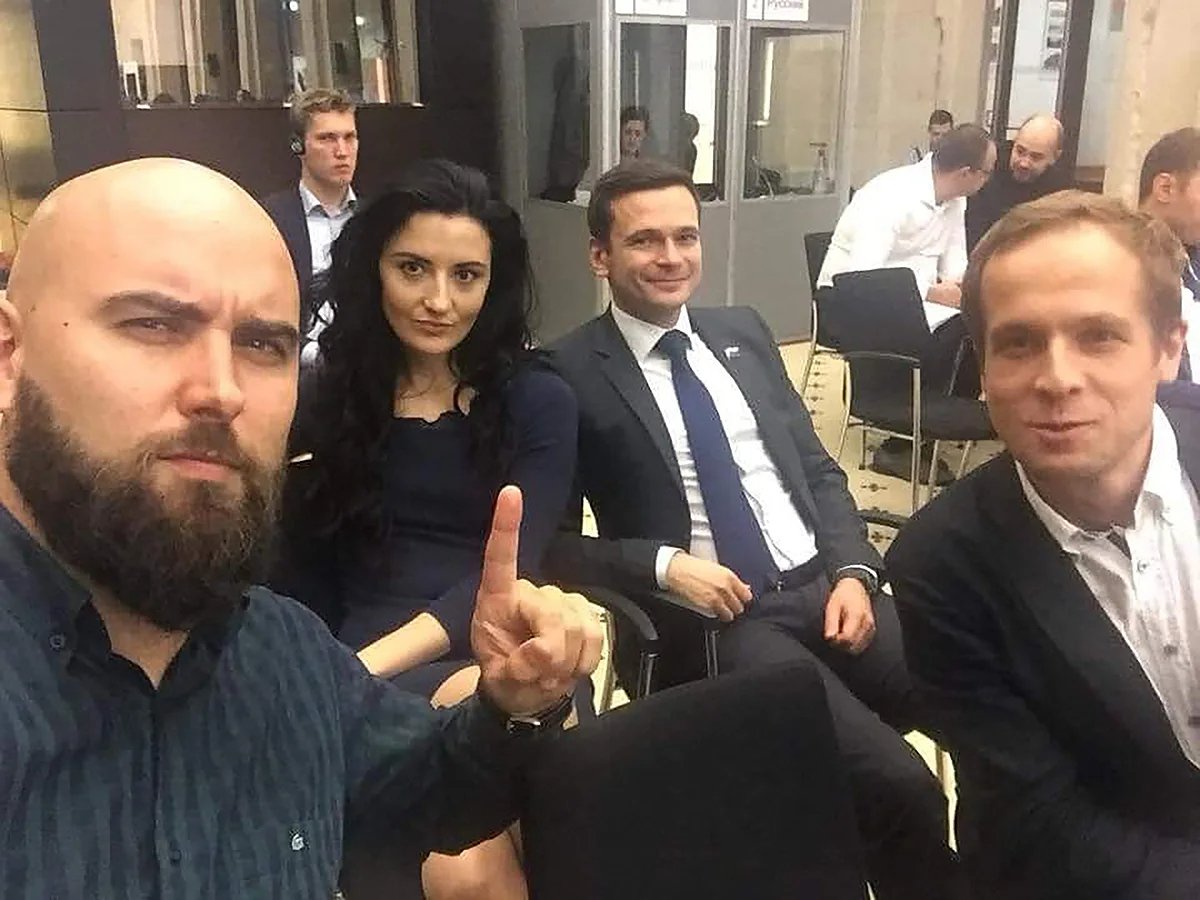
It took seven years and the spectacle of Putin personally welcoming him home at Vnukovo Airport earlier this month for the Russian opposition to finally accept that all this time the friendly Spaniard had been writing reports for the GRU.
González first met Zhanna Nemtsova, Nemtsov’s daughter and the co-founder of the Boris Nemtsov Foundation for Freedom, in Brussels in 2016. Pavel Yelizarov, a Portugal-based political activist and Nemtsova’s ex-husband, recalls González requesting she do an interview with him, after which he became “part of her circle”.
Yelizarov admits that at some point his relationship with González was rather friendly and in 2017 and 2018, they communicated quite frequently, with González describing himself as a leftist.
“Pablo is an everywhere man. He likes to sit in a bar and drink beer. He’s an adrenaline junkie, so would go to places where there were military conflicts, protests, that sort of thing. He found all that interesting,” Yelizarov remembers.
González became friendly with Novaya Gazeta special correspondent Ilya Azar while they were both covering conflicts in Donbas and Nagorno-Karabakh.
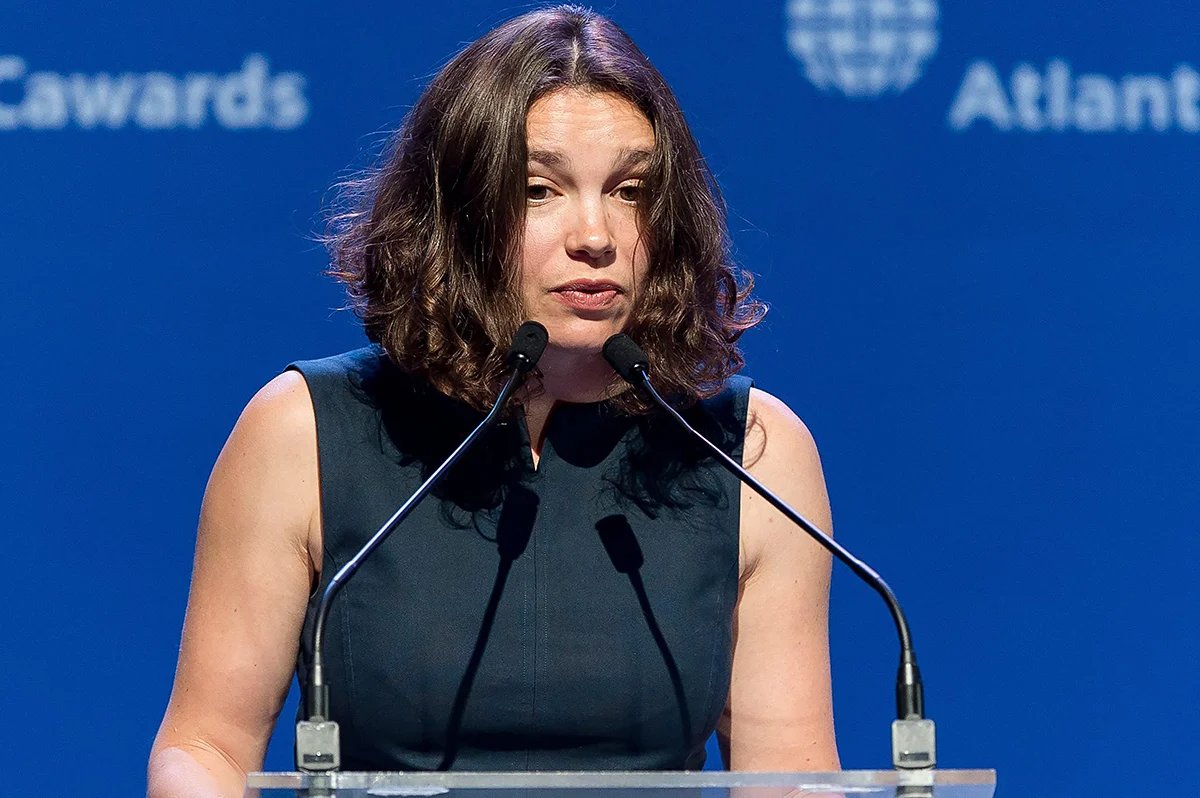
Zhanna Nemtsova receives the 2015 Atlantic Council Freedom Award on behalf of her late father at the Wrocław Global Forum in Poland, 12 June 2015. Photo: Maciej Kulczynski / EPA
“We crossed paths in places that made me think he couldn’t possibly be a GRU employee,” Azar says. “When you come under shelling in Stepanakert at night and drink whiskey with dazed colleagues in bulletproof vests in a half-dark hotel, you somehow don’t find yourself thinking: ‘You’re not a GRU guy by any chance, are you, Pablo?’”
Azar remembers him as easy to talk to and reliable, a fellow journalist “it was nice to exchange stories and have a drink with”. “I generally trust colleagues, and there’s a sort of journalistic solidarity in wars and conflict zones,” says Azar.
“When you come under shelling in Stepanakert at night and drink whiskey with dazed colleagues in bulletproof vests in a half-dark hotel, you somehow don’t find yourself thinking: ‘You’re not a GRU guy by any chance, are you, Pablo?’”
González was also very interested in Donbas, says Novaya Gazeta Europe’s editor-in-chief Kirill Martynov, who, like many, met him at the Nemtsov Forum.
“He expressed sympathy for people who found themselves on the territory of the ‘Donetsk People’s Republic’. Back then, many people wrote about their problems, travelled there, and reported on it. It felt like he was a freelance journalist, reporting on the horrors of war, who wanted to be friends with everyone because he had a difficult job. He was very sociable during the conference, making contacts, talking about the importance of freedom of speech. As far as I remember, he met almost everyone at that conference,” Martynov recalls.
Revolutionary heritage
Those interviewed by Novaya Europe remember González not only for his ability to put people at ease but also for his unusual background. Born in Moscow in 1982 and originally named Pavel Rubtsov, his mother was a descendant of the “Niños de Rusia” — the children of revolutionaries who opposed the dictatorship of Francisco Franco and were evacuated to the Soviet Union in the 1930s to escape the Spanish Civil War. González’s father, Alexey Rubtsov, has held managerial positions at Russian state-affiliated news outlet RBC since 1999.
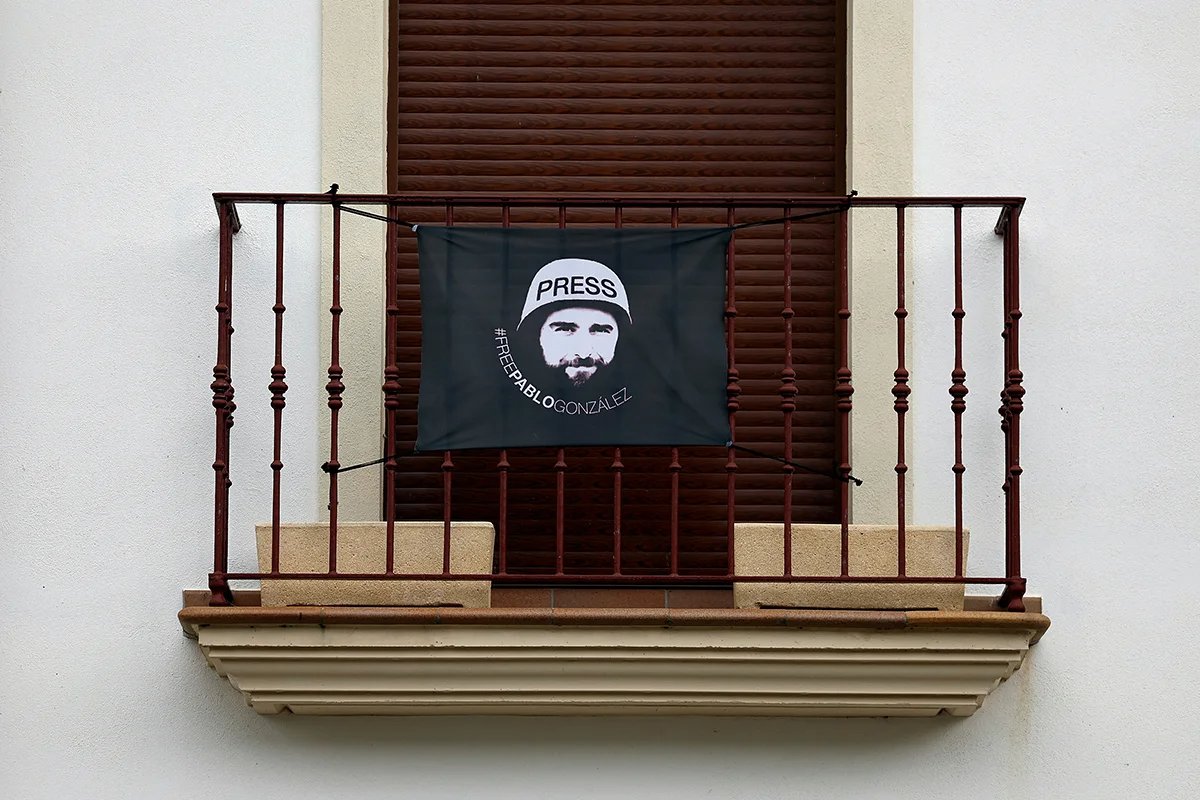
A poster reading “Free Pablo González” in the Basque town of Nabarniz, Spain, 1 August 2024. Photo: Vincent West / LETA
By the late 1980s, González’s mother had relocated to her ancestral homeland, and brought her son with her. There, she changed his name to Pablo González Yagüe. They lived in Bilbao for a year before moving to Catalonia. In 2005, González settled in the Basque Country, after obtaining a Russian passport in Moscow under his birth name two years beforehand.
González started working as a journalist in 2014, specialising in Eastern Europe and military conflicts. His work led him to cover the illegal Russian annexation of Crimea and the invasion of Donbas, the war in Nagorno-Karabakh, and issues related to the international recognition of Kosovo and Transnistria for Spanish news outlets Público, EFE, and laSexta, as well as Voice of America, Deutsche Welle, and others. González holds a degree in Slavic philology and wrote a doctoral dissertation on the persecution of the LGBT movement in Georgia at the University of the Basque Country.
Detention in Poland
Immediately before the Russian invasion began, González was in eastern Ukraine ostensibly reporting, when he received a call from a Ukrainian intelligence officer requesting he come to Kyiv. There, he was interrogated and accused of “pro-Russian bias”, but was subsequently released.
Simultaneously, Spanish intelligence agents questioned his relatives in Spain, though this didn’t lead to any further action either. González returned to Spain and was left in peace for almost a month. He then decided it was safe to leave the country and travelled to the Polish-Ukrainian border on 25 February, purportedly to cover the refugee crisis.
Three days later, he was detained in the Polish city of Przemyśl, near the Ukrainian border. The Polish authorities said that, according to their information, he was working for Russian intelligence and intended to enter Ukraine.
Following his arrest, Spanish protesters took to the streets in the Basque Country demanding González’s release, and a slew of international NGOs, including Reporters Without Borders, Amnesty International and the International Federation of Journalists, quickly condemned the arrest.
Press freedom organisations pointed to the Polish media’s poor state of health at the time, noting that the EU had often raised concerns about shrinking civil liberties in the country, though Reporters Without Borders representative Jeanne Cavelier later told Novaya Gazeta Europe that the organisation had never considered González “arbitrarily detained,” but had simply lobbied the Polish authorities to organise a swift and fair trial to determine whether González was guilty.
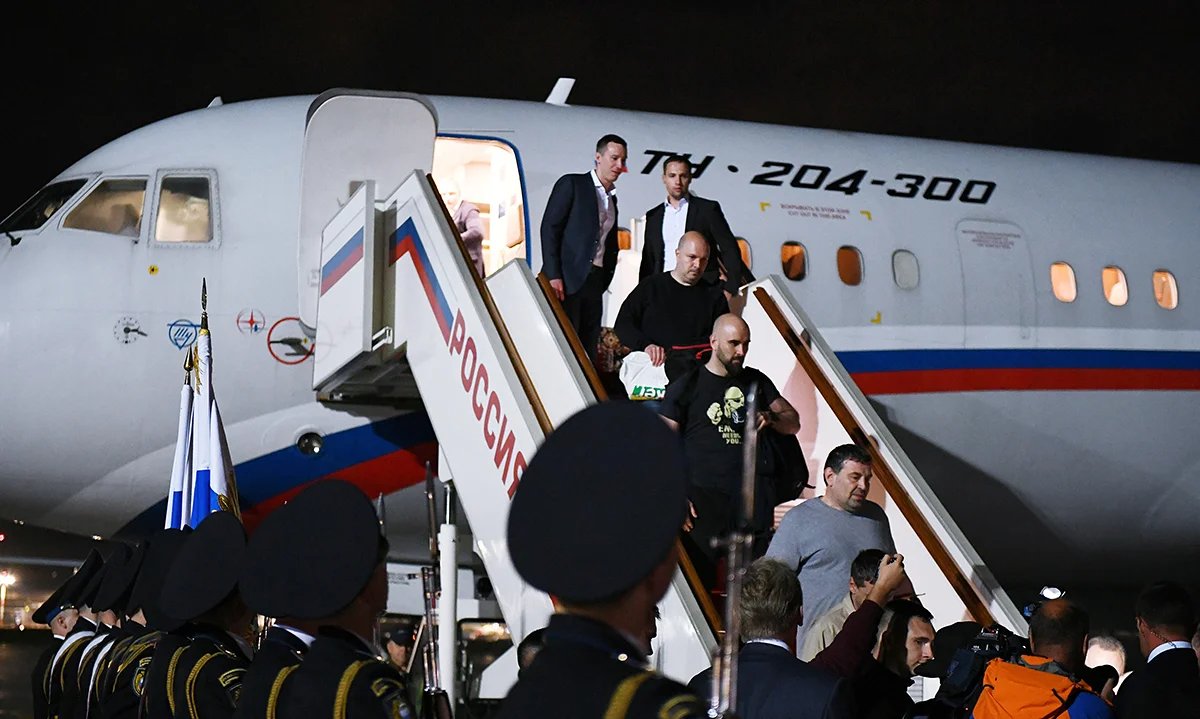
Russian citizens released as part of the prisoner swap arrive at Moscow’s Vnukovo Airport, Russia, 1 August 2024. Photo: Sergey Ilyin / Sputnik / Kremlin Pool / EPA-EFE
According to those close to the investigation into González’s infiltration of the Nemtsov Foundation, González described the activities of Nemtsova and her friends, foundation employees and partners, as well as students at the foundation’s annual journalism summer school in great detail. Sensitive materials were also found in González’s possession which investigators suspected had been copied from Nemtsova’s computer.
The Nemtsov Foundation did not respond to Novaya Europe’s request for a comment. The foundation’s co-founder Olga Shorina also declined to comment, noting that she could not comment on the matter due to a non-disclosure agreement.
After González was part of the largest prisoner swap since the Cold War that saw 24 prisoners exchange hands, there can now be little doubt that he was a Russian spy.
It is unclear whether González will be tried in absentia by a Polish court following the exchange. However, as if it were needed, the Rubtsov case provides yet more evidence that Russian intelligence officers continue to target the political opposition both domestically and abroad.
Делайте «Новую» вместе с нами!
В России введена военная цензура. Независимая журналистика под запретом. В этих условиях делать расследования из России и о России становится не просто сложнее, но и опаснее. Но мы продолжаем работу, потому что знаем, что наши читатели остаются свободными людьми. «Новая газета Европа» отчитывается только перед вами и зависит только от вас. Помогите нам оставаться антидотом от диктатуры — поддержите нас деньгами.
By clicking the Support button, you agree to the processing of your personal data.
To cancel a regular donation, please write to [email protected]
